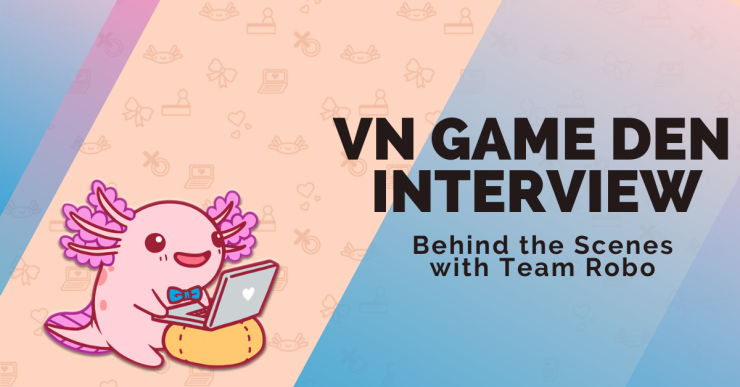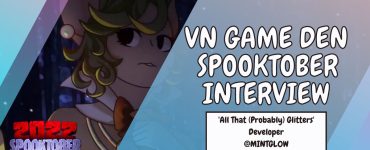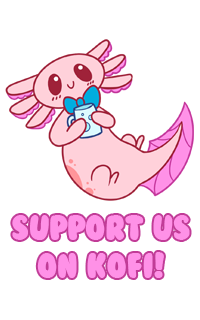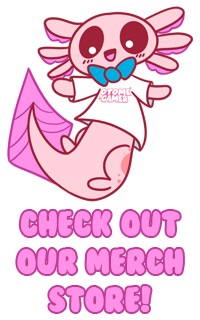Team Robo is a game development team that creates narrative driven experiences. The team is made up of a brother and sister duo. Alwayspolite2 is the team’s writer, programmer, and composer while nonagon is the lead artist. They are currently working on the successfully kickstarted project, Tomorrow Will Be Dying.
We had the opportunity to sit down with the group and discuss their upcoming game, marketing strategies, and future projects VN Game Den readers can look forward to!
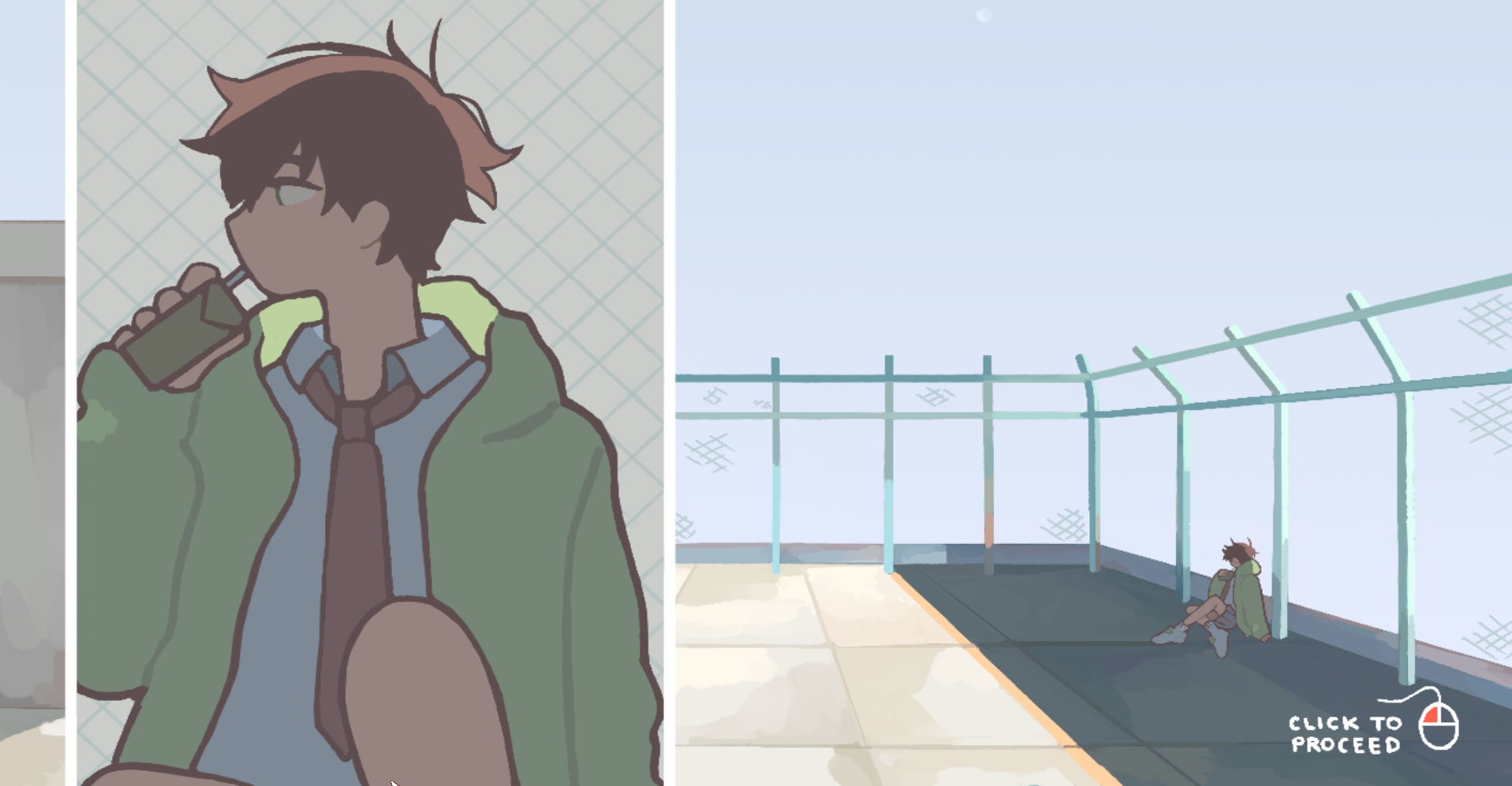
Tomorrow Will Be Dying is your current game in development. Can you tell us about it?
Tomorrow Will Be Dying is a slice of life game about four characters that were in an Occult club together and how they suddenly reunite after spending a couple years apart after high school. Their reunion affects their lives individually, but the game’s narrative focuses and is told through the eyes of B, an aloof university entomology student who is dealing with depression and has been living her day to day life aimlessly. The story shows B re-connecting with friends and family of the past, making new bonds with the people around her in the present, and figuring out where she wants her future to go — all while struggling to move on from the loss of her childhood friend. It’s a story about how important connections are, what it means to live, and to have hope that life will get better no matter the struggle you’re going through as long as you work towards it.
What inspired the game’s premise?
The original prototype from 2010 was created with inspiration from the anime Tatami Galaxy from which we got our university setting, as well as the Persona series. This was a radically different game made in RPG Maker as a joke called “Get A Life”, using Non’s doodles as sprites. The idea was for the player to choose clubs as different routes. The thing was rightly buried and lost to the sands of time (we recently put up a picture of it on our Twitter).
When we revived the project in 2019, those influences remained a central core of our vision, as you can see in the Social Link-like Free Time. Of course, we’ve experienced a ton of media since then; over the years, we’ve really taken more and more to slice of life stories featuring the mundane (March Comes In Like A Lion, Clannad, etc.). The game’s premise is the culmination of all of that.
What inspired the name Tomorrow Will Be Dying?
Early on in our search for a unifying theme for the game during conceptualization, we came across a carpe diem poem entitled “To the Virgins, to Make Much of Time”, written by Robert Herrick in the 1600s. This particular couple of lines stuck out to us.
“And this same flower that smiles to day,
To morrow will be dying.”
Since then, we’ve striven to infuse the game with the themes presented in the poem (probably a good idea considering the title was taken from it!). Without getting into too much detail, hopefully when everything’s said and done players will find all of these elements working together in a cohesive way…
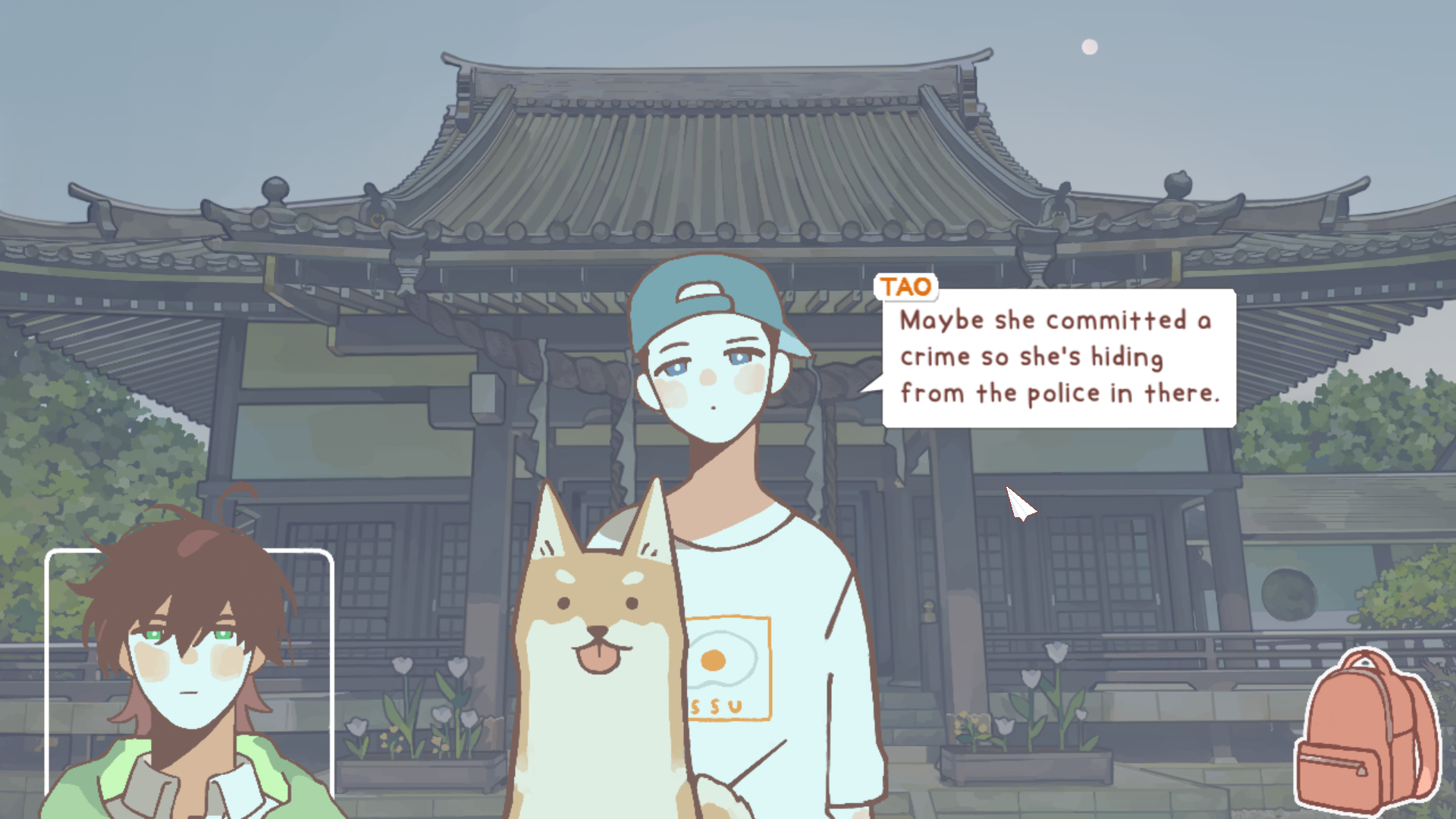
Can you speak more about the interactive elements of Tomorrow Will Be Dying that sets it apart from an average VN?
Something we always value in any project is immersion and building an atmosphere, so early on we decided to include those elements. Mechanics like the money/inventory, hunger/cooking system, and free roaming systems are all meant to help the player step into the shoes of B as easily as possible. At this point this still sort of sounds like a far-off dream, but the goal is for organically-made choices involving day-to-day activities to affect the way the story is experienced instead of solely dialogue choices, as is often the case.
To be sure, these systems have been done before, but we hope the manner in which everything is merged together ultimately proves fresh while complementing the story. It’s honestly a bit of a tall order, but we’re up to give it a shot!
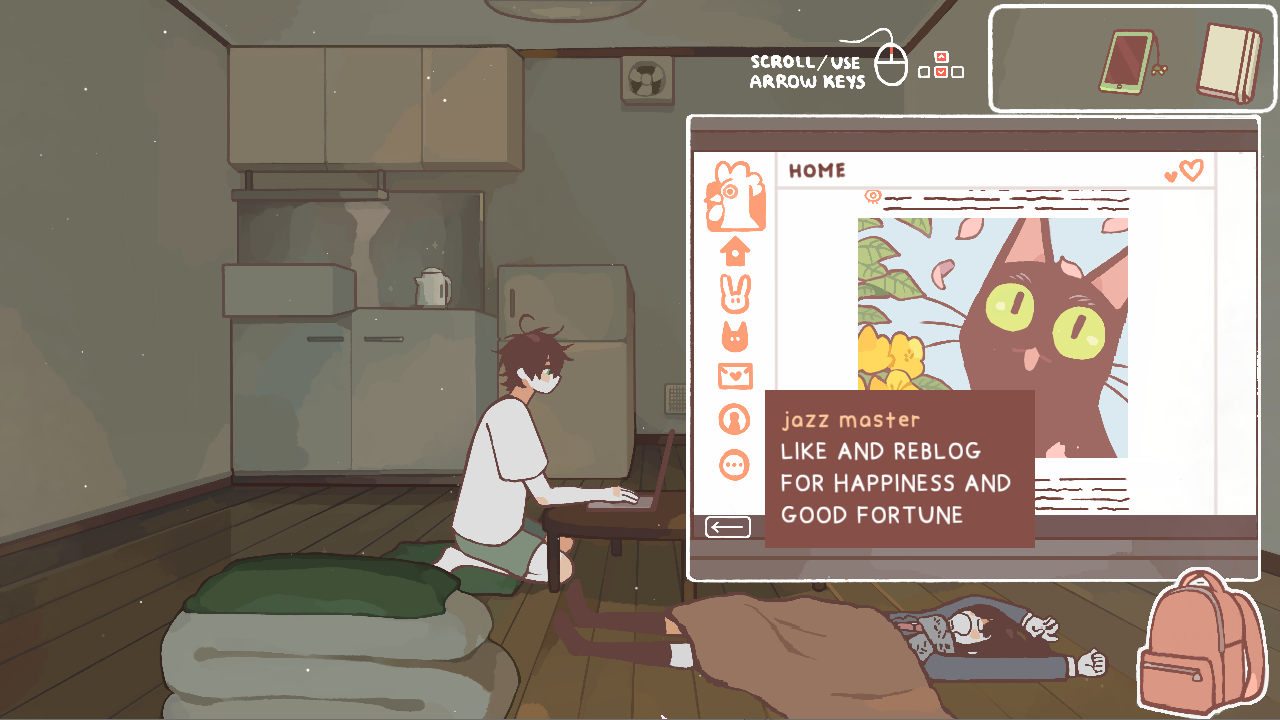
What made you decide to make the game a simulation experience?
We were actually designing a more action-oriented game before switching over to this “smaller” project. With that more standard video game development mindset, we wanted to make a visual novel with a bit more interactivity than average with all sorts of ideas for mechanics. Things like stats, mini-games and free time roaming took precedence specifically since we didn’t really have a fully-realized story to tell. Priorities have shifted since then, and the plot is absolutely the main focus with our aim to have those life-simulation mechanics simply enhancing it as best they can.
Are there any struggles you’ve had to overcome in development so far?
It’s been a bit rough for us; we’re still in the middle of overcoming many. From story revisions to art revisions, changing the entire game’s resolution… All to the point where the current demo on itch is hardly representative of what we’ll be releasing down the line. What it boils down to in the end is just inexperience and an unfortunately unforeseen lack of planning. We’ve both continued to hone all of our skills since development started, but at the cost of a lot of time — as our backers are fully aware!
You launched a successful Kickstarter! Do you have any advice for developers who want to launch their own campaign?
While our campaign did far better than what we ever imagined, we’re certainly no experts! Any reasons we could come up with for our success would be guesses at best, so the best advice for any aspiring VN devs out there that we can offer will probably come from our mistakes.
For example, we took about five months preparing for the campaign, beginning with the initial conceptualization of the project in October 2019. That was, at least in our case, definitely not enough time. Our lack of a solid outline and the vagueness in our vision really bit us in the butt down the line. If you’re making a visual novel, we definitely recommend taking more time in the planning phase so you don’t find yourself cutting assets and delaying your project as we have! At this point this is probably somewhat hypocritical of us, but we also really do recommend you keep your first project reasonably small-scale.
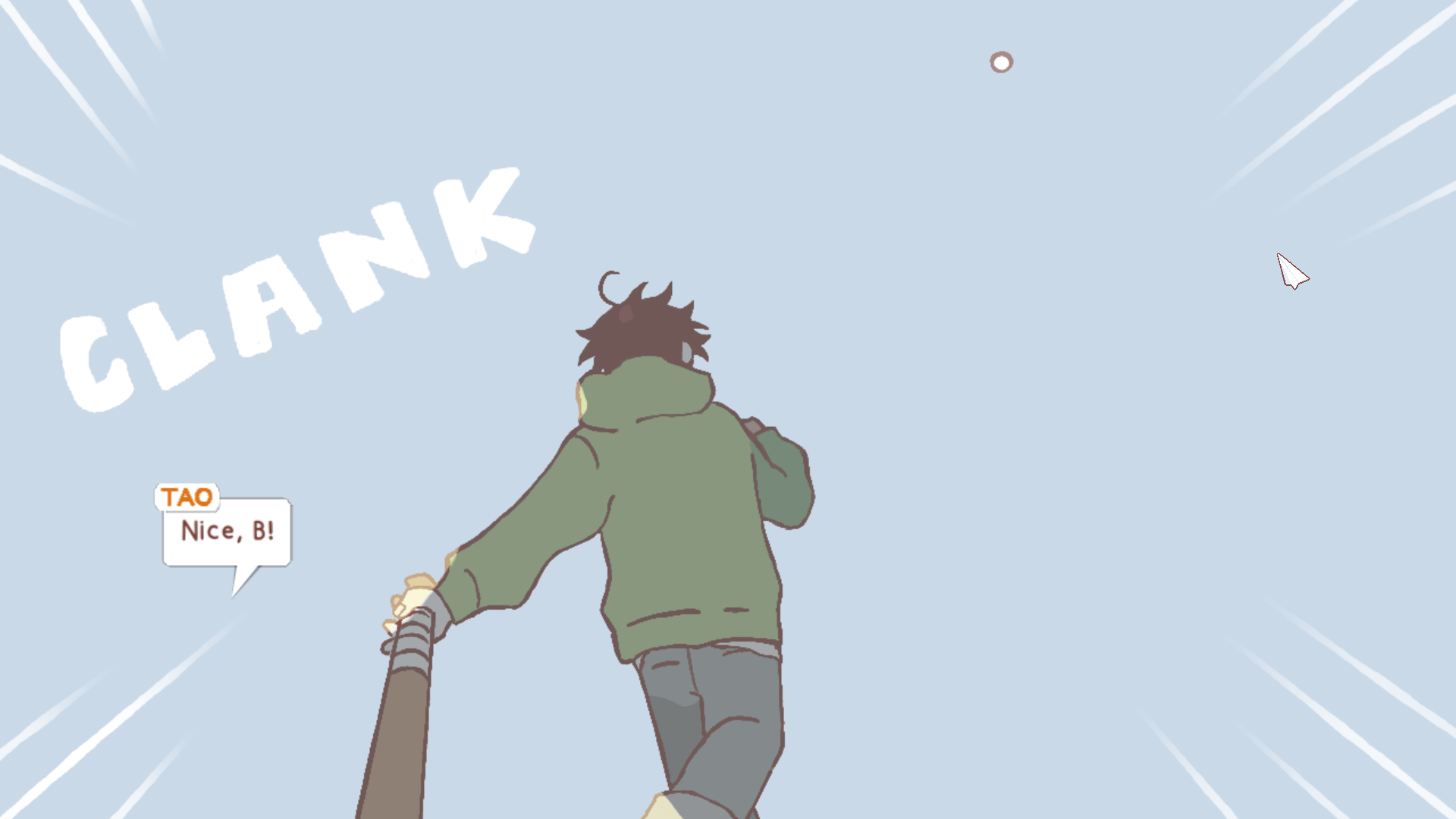
From your research, what has worked for you so far in terms of marketing your game? What hasn’t?
We’re pretty focused on development so we haven’t been able to push the game out there very much lately. Nevertheless, posting Twitter videos showcasing the UI, mechanics such as cooking, traveling, minigames and especially animated CG scenes has, so far, proven the most helpful in garnering attention.
On the other hand, Kickstarter updates, which are what we spend the majority of our “marketing” time on, don’t get quite as much traction. Of course, they’re not really done for marketing purposes but just to keep supporters interested and give them an idea of where development stands.
We’ve got ideas for what to show off in the future, but due to what we’re working on we’re in a bit of a lull in terms of being able to piece together anything cool at the moment.
The art for Tomorrow Will Be Dying is very unique! What inspired this style?
Nonagon:
The initial concept designs were essentially just updated versions of the characters from our original prototype, so the art style was a mix of the old style (doodles) and my “current style” in 2019. Things like the pure white skin and filled in black hair were part of the old style, but the designs and colouring style were updated to how I generally drew in 2019. I did all of the sprites and CGs based off the style of my very first concept artwork with no revisions which ended up being a problem later when my art style and design sense started improving. Nowadays I take a lot of inspiration from artists like Makoto Shinkai and Kii Kanna, so I changed the artwork style of both the characters and backgrounds to be more detailed in terms of colouring and lineart. I wanted the world of Mokuzai to feel memorable and lived-in, and I wanted the characters to feel alive while having unique qualities to each and every one of them.
I also wanted the way I drew and designed the characters to be representative of how they would truly look in real life while still having unique silhouettes so it would be easy to identify them and how the characters perceive each other in-universe.
Is there a particular reason you chose to make a visual novel?
As we alluded to earlier, we admittedly really just wanted to dip our toes in something we thought would be easy to whip up quickly. Text, a few pictures… It would’ve been a really small project that we could throw out there after a few months as a stepping stone before moving onto our “real” projects. Up to that point, the most experience we had with the medium was basically the Phoenix Wright series, with a few others sprinkled in here and there. This is why our initial inspirations were mostly from anime and manga.
Fast-forward to August 2021 and not only had our ambition grown immensely, but so had our dissatisfaction with our narrative. Thusly, we’ve since gone through some of the highest rated visual novels of multiple genres for reference (White Album 2, Little Busters, Rewrite, Higurashi/Umineko, etc.) and have come to fall in love with the medium. We can both say we now appreciate it as one of the greatest ways to tell a story to the point where our interest in creating more traditional genres of games is seriously waning. We couldn’t be happier to be working on TWBD now even after all these delays, and are fully intent on creating a visual novel to stand with the greats — if not this one then one in the future!

Is there anything you can share about Tomorrow Will Be Dying’s development currently?
Those following our Kickstarter updates will know we’re currently both chipping away at backgrounds while simultaneously watching Let’s Plays of about six different VNs to further our experience for when it’s finally time to sit down and revise the story. (In case you were wondering how we were managing to consume all those lengthy visual novels at the same time as working.)
One thing about the story that we haven’t really mentioned anywhere else is that we originally planned to have as little “tell” as possible, in that a lot of the story would be told purely through dialogue and art. In fact, the entire first draft was finished this past August with that mindset. We’ve only more recently gained insight into the strength of narration in VNs and plan to utilize it much more (hopefully well) when we finally get back to writing.
There’s been a lot of back and forth in basically every aspect of the game so far, but it’s usually tons of fun to hold meetings, analyze what works and what doesn’t, as well as put our heads together to brainstorm up solutions.
What can VN Game Den readers look forward to in the future?
Aside from more Kickstarter updates and the very occasional twitter post, there’s of course the release of the game (hopefully some time this year) and then after that, the three free DLCs featuring other characters, as promised in the campaign. We’ve got plenty of ideas regarding those, so we’re really excited to get started on them!
Following that, we’re planning to return to that “larger” project we keep mentioning — which we’re 100% sure will be reformatted as a VN.
You can download the extended demo of Tomorrow Will Be Dying on itch.io. If you’d like to find out more about Team Robo, follow them on Twitter!

